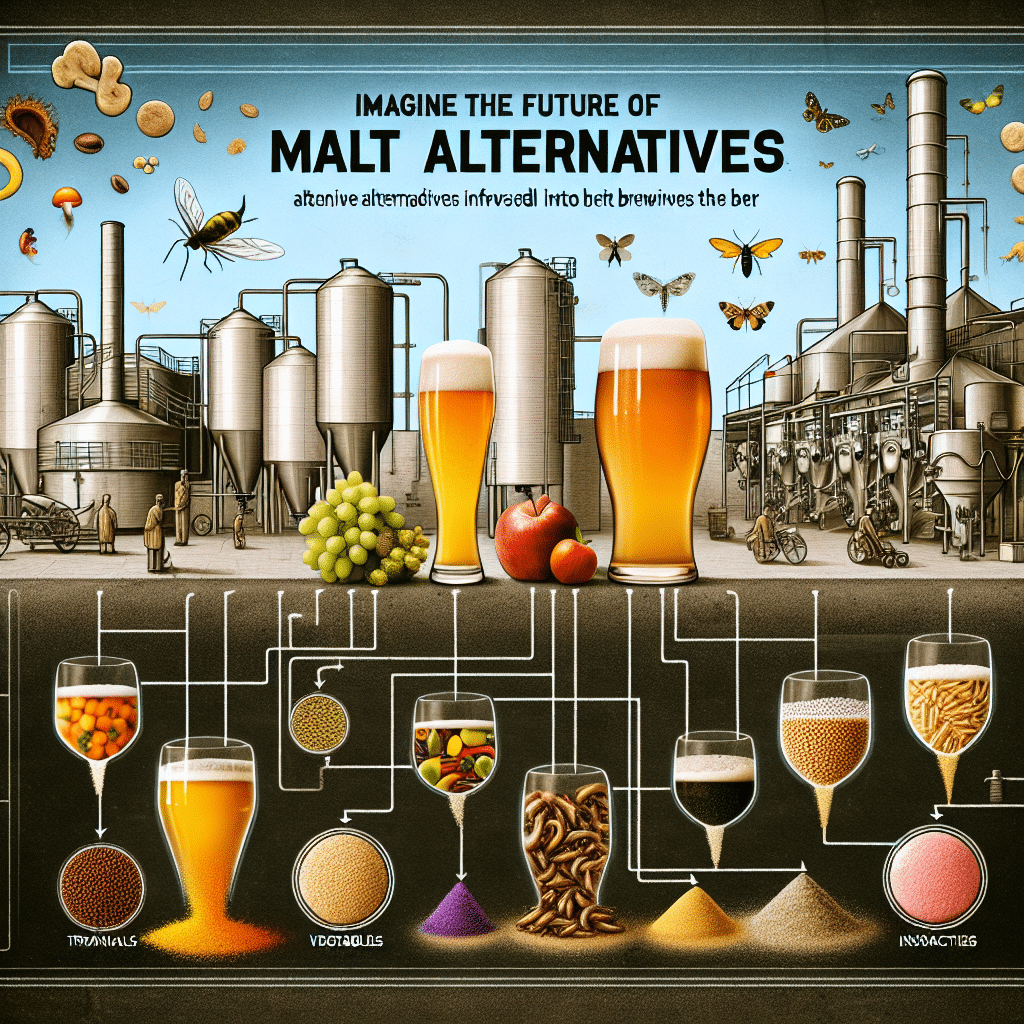Malt Alternatives are Influencing the Future of Beer Brewing
-
Table of Contents
- Malt Alternatives Shape the Future of Beer Brewing
- The Rise of Malt Alternatives
- Environmental and Economic Drivers
- Dietary Trends and Health Considerations
- Flavor Innovation and Consumer Preferences
- Types of Malt Alternatives
- Case Studies and Success Stories
- Challenges and Considerations
- Statistics and Market Trends
- Conclusion: Embracing the Change
- ETChem’s Protein Products: Enhancing Beer Quality
Malt Alternatives Shape the Future of Beer Brewing

The beer brewing industry has been a bastion of tradition for centuries, with malted barley serving as the cornerstone of the brewing process. However, as the world evolves, so too does the art of brewing. Malt alternatives are not just a passing trend; they are influencing the future of beer brewing in significant ways. This article delves into the reasons behind this shift, the types of alternatives being used, and the impact they are having on the industry.
The Rise of Malt Alternatives
Several factors contribute to the increasing use of malt alternatives in brewing. These include environmental concerns, economic factors, dietary preferences, and the pursuit of unique flavors. Brewers are turning to ingredients like rice, corn, sorghum, and even non-traditional grains such as quinoa and millet to create innovative beers that appeal to a broader audience.
Environmental and Economic Drivers
Climate change and the need for sustainable practices are pushing brewers to consider the environmental impact of their ingredients. Malted barley requires significant water and energy to produce, and its cultivation can be limited by geographical and climatic conditions. Malt alternatives often have a lower environmental footprint and can be sourced more locally, reducing transportation emissions and supporting local economies.
Dietary Trends and Health Considerations
Consumer demand for gluten-free and lower-calorie options has also spurred the use of malt substitutes. Grains like sorghum and buckwheat are naturally gluten-free, making them ideal for crafting beers that cater to those with dietary restrictions. Additionally, some alternatives can result in lighter beers with fewer calories, aligning with health-conscious consumer trends.
Flavor Innovation and Consumer Preferences
Brewers are constantly experimenting with new ingredients to differentiate their products and satisfy the adventurous palates of craft beer enthusiasts. Malt alternatives can impart unique flavors and textures, allowing for a broader range of beer styles and taste profiles.
Types of Malt Alternatives
- Rice and Corn: Often used in lighter lagers, these adjuncts can lighten the body and flavor of beer.
- Sorghum: A popular choice for gluten-free beers, sorghum provides a neutral base that allows other flavors to shine.
- Ancient Grains: Quinoa, millet, and amaranth are gaining popularity for their nutritional benefits and distinctive tastes.
- Non-Grain Alternatives: Ingredients like potatoes, cassava, and lentils are being explored for their fermentable sugars.
Case Studies and Success Stories
Many breweries have successfully incorporated malt alternatives into their offerings. For instance, a Colorado brewery has gained acclaim for its millet-based gluten-free beers, while a Japanese brewery uses rice to create a clean, crisp flavor profile that has become a global favorite. These examples demonstrate the potential for malt alternatives to create beers that are not only environmentally and economically viable but also highly sought after by consumers.
Challenges and Considerations
Despite the benefits, there are challenges to using malt alternatives. Brewers must navigate differences in sugar content, enzymatic activity, and protein levels, which can affect fermentation and the final product’s quality. Additionally, consumer perceptions and regulatory definitions of beer can pose hurdles for widespread adoption.
Statistics and Market Trends
The global craft beer market is expected to continue growing, with malt alternatives playing a significant role. According to market research, gluten-free beer sales are projected to increase, reflecting a growing segment of health-conscious consumers. Furthermore, sustainability concerns are driving more breweries to consider their environmental impact, leading to a rise in the use of locally-sourced, eco-friendly ingredients.
Conclusion: Embracing the Change
The future of beer brewing is being shaped by the innovative use of malt alternatives. As brewers seek to create sustainable, flavorful, and inclusive beers, these ingredients are becoming integral to the industry’s evolution. From environmental benefits to meeting consumer demands, malt alternatives are more than just a trend—they are a testament to the adaptability and creativity of brewers worldwide.
ETChem’s Protein Products: Enhancing Beer Quality
In the quest for innovation, protein products from ETChem can play a pivotal role in enhancing the quality of beers brewed with malt alternatives. Their high-quality collagens can contribute to the mouthfeel and stability of beer, ensuring that even non-traditional brews meet the highest standards of excellence.
About ETChem:
ETChem, a reputable Chinese Collagen factory manufacturer and supplier, is renowned for producing, stocking, exporting, and delivering the highest quality collagens. They include marine collagen, fish collagen, bovine collagen, chicken collagen, type I collagen, type II collagen and type III collagen etc. Their offerings, characterized by a neutral taste, instant solubility attributes, cater to a diverse range of industries. They serve nutraceutical, pharmaceutical, cosmeceutical, veterinary, as well as food and beverage finished product distributors, traders, and manufacturers across Europe, USA, Canada, Australia, Thailand, Japan, Korea, Brazil, and Chile, among others.
ETChem specialization includes exporting and delivering tailor-made collagen powder and finished collagen nutritional supplements. Their extensive product range covers sectors like Food and Beverage, Sports Nutrition, Weight Management, Dietary Supplements, Health and Wellness Products, ensuring comprehensive solutions to meet all your protein needs.
As a trusted company by leading global food and beverage brands and Fortune 500 companies, ETChem reinforces China’s reputation in the global arena. For more information or to sample their products, please contact them and email karen(at)et-chem.com today.




